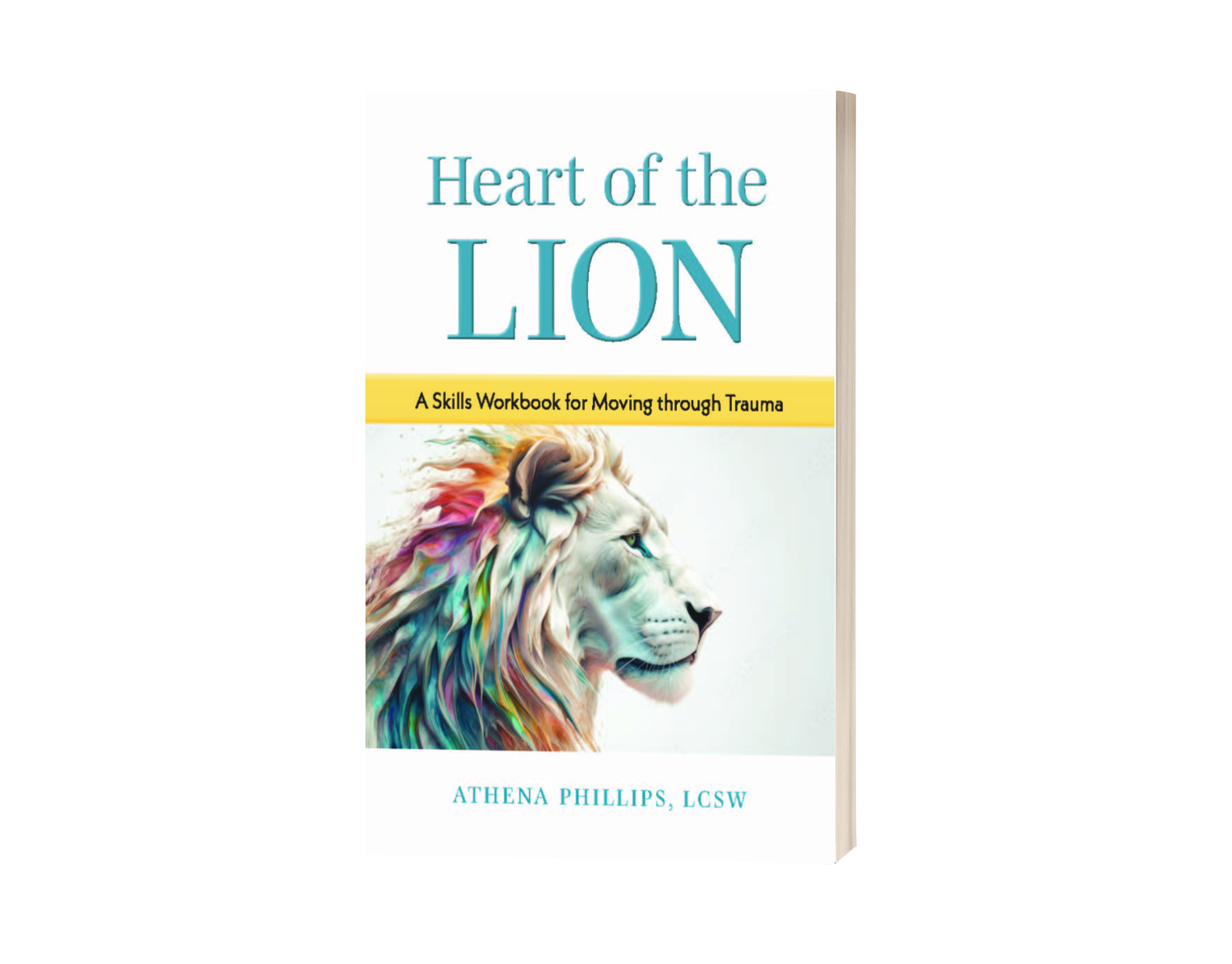Heart of the Lion: A Skills Workbook for Moving Through Trauma
Trauma is often self-perpetuating, moving seamlessly from one generation to the next. When we experience something emotionally overwhelming, various dimensions of our lives can be affected. Heart of the Lion was created to support survivors in moving through the past with structure and safety in mind and can be utilized by therapists, coaches, and survivors.
Heart of the Lion is organized into three sections, all of which are designed to build on each other. The first segment was created to help survivors assess their areas of strength, growth, and barriers to goal attainment. The overarching goal here is to help identify the desired outcomes while building on each person's unique capacities.
The second section focuses on taking care of the mind, the body, and relationships. Trauma recovery can be likened to running a marathon; it is demanding work that requires endurance. Addressing sleep difficulties, tracking healthy and unhealthy habits, and building a safety net of resources and supporters are some of the areas of focus in this section.
The cornerstone of the final part of the book surrounds managing emotions, trauma triggers, interpersonal difficulties, and understanding the purpose behind symptoms commonly associated with trauma. Each aspect of the workbook was created to support survivors in moving through or preparing for their healing process through a lens of agency and honor.

“Being “triggered” is not the same as being upset. Upset feelings are typically related only to the present, whereas a trauma trigger is related to the past.”


